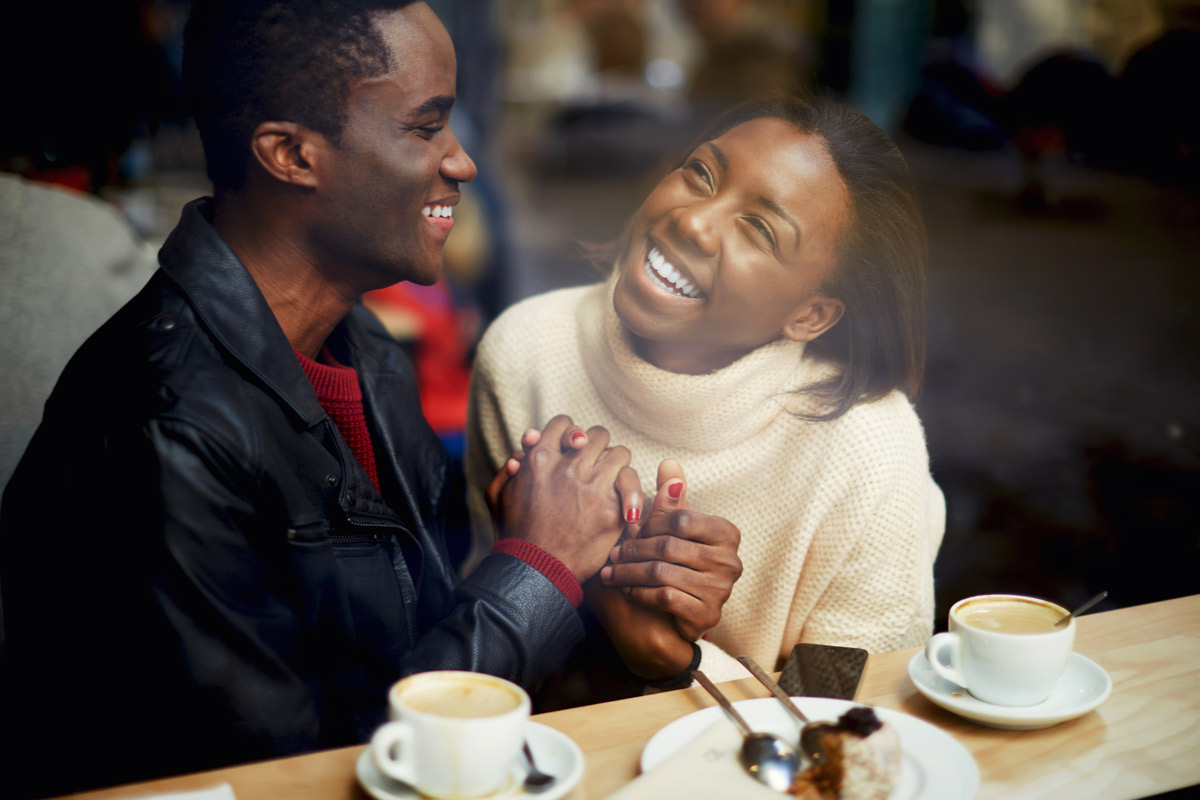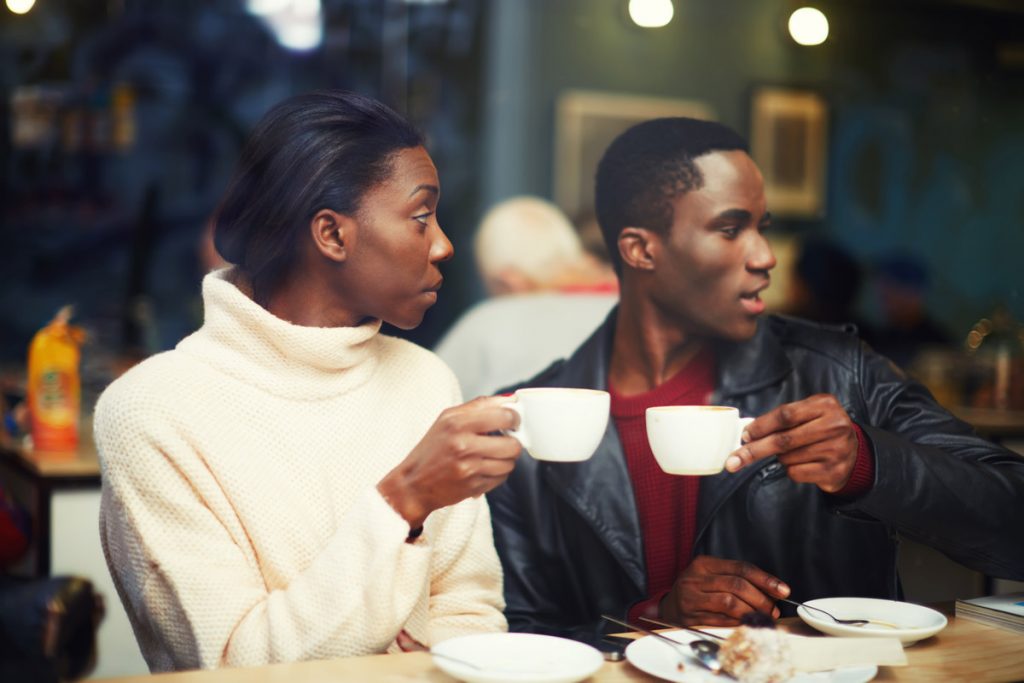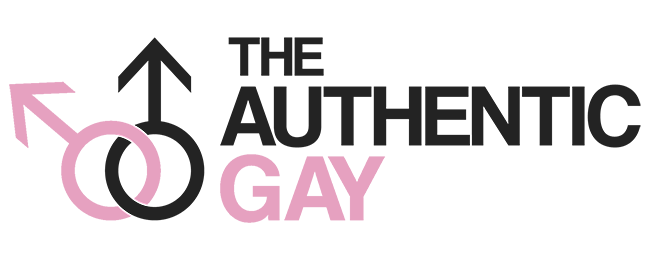Mister, Sister: The Bestie Battle of Straight Women & Gay Men

There has been an unspoken bond between straight women and gay men for what seems like forever. From little gay boys playing with girls on the playground to having someone to go to prom with these bonds run deep. We are often fast friends and have an unabashed appreciation for each other. We can bond over our love of men or movies with a strong female lead. But we are still different genders. Also, politically, at times, we can seem like frenemies. The complexity of male privilege vs. straight privilege and homophobia vs. misogyny call into question this seemingly perfect union.
We are both equal opportunity offenders. How many gay men are misogynists? How many straight women ignore their own cis/hetero privilege? Whether we are talking about gay guys calling women bitches and whores or bachelorettes invading gay bars for the “novelty.” This is a complicated relationship where we are forgetting our privilege. We are complicit in the oppression of someone whose equality could mean an end to our abuse. After all, doesn’t misogyny and homophobia come from fear and hatred for femininity? Isn’t it society’s toxically masculine response to the fear of the unknown?
Gay Men: The Problematic Part
Rape culture is so deeply ingrained in gay culture. It’s in our porn, our behavior at bars, and incorporating your deep-rooted anger or insecurity into how you have sex. We gloss over daddy issues, boundaries, and our overall issues with men. But many of these issues have to do with what we try to retain from straight male culture. But how do we suss out the masculine from the toxically masculine? As gay men, growing up, we are consistently reminded of how we are not heteronormative. But heteronormative masculinity is not sustainable? It honestly seems like a tool to keep people insecure and weak. Men channeling all their emotions into anger because being outwardly happy or sad would make them look weak or gay. Not being able to wear a pink shirt or do “female” things because they’ll be mocked. This seems like a psychological issue we all accept -as the norm.
We have male privilege. We may not realize that power when we use the tools of the patriarchy to intimidate and diminish women. While we may be reappropriating slurs like bitch and whore, is it our place to do that? If straight women were calling each other fags, that would be hilarious. But, not okay. We also can afford to prioritize making space for queer women in queer spaces before we roll out the red carpet for our gal pals. We also can fail to realize that as men, we are socialized to openly express ourselves in a way that women are not. Also, gay men are coincidentally the only winners in the pay wage gap. Two male salaries are higher than their straight or lesbian counterparts.
As marginalized people, we can always afford to not just focus on how we are oppressed. We can also stand to look at what privilege we do have. This is the key to intersectional politics. The privileged/oppressed model is the perfect paradigm for talking about social issues. Privilege is inherent sociologically. And oppression is part of the system that we can afford to change.
Straight Women: The Problematic Part
Straight women are in an interesting place politically. They seem to be taking two steps forward and one step back. There’s the ongoing debate about intersectional vs. white feminism. For example, how many of our straight girlfriends say things like “I want a ‘real’ man.” Isn’t that perpetuating the toxic masculinity oppressing them? How many straight women act like certain qualities or behaviors make someone gay? Implying that men who do not fit into the toxically masculine system are gay also reinforcing the system?
We ultimately have to accept that while gender is a construct, we are different. Men and women have different hormones, physiologies, and biological imperatives. Gay men are still men. We are not neutered playthings or mannequins that spout out snarky clapbacks. While we can sometimes communicate the way women do, we are different in how we are socialized, how we feel about things, and how we see the world.
Straight women do feel really emboldened in gay bars. Sure, it’s great to have a safe place away from men. But that doesn’t mean you get to act the way men do. They often get drunk without abandon and act like they own the place. I’ve been in West Hollywood, where a woman manhandled me. I kindly reminded her about consent culture, and she did it again. I’ve seen women pitch fits, vomit, and get messy. How would they feel if suddenly hair and nail salons were littered with large groups of drunk gay men acting a fool?
Everyone is welcome at gay bars, but unlike straight people, we created gay places as a place for us to feel safe and connect. Some queer people still feel uncomfortable in straight bars. Also, there are plenty of social places where women can be with other women and only other women. Rather than using gay bars as a fun lark for girls to be girls, wouldn’t it be great for women to create more women-owned bars and nightclubs to create the space they want rather than colonizing gay bars?
Also, as we become more engaged in social politics, the “white feminist” response that all men are privileged ergo; they are all bad needs to be adjusted. Intersectionality is important because while gay men can sometimes be complicit in misogyny, we are also victims of it. Our behavior, how we talk, what we like, who we sleep with, has been attacked or judged or talked about. Our oppression is more similar than it is different.
White Feminism vs. Intersectional Feminism
White feminism is characterized by its lack of understanding of how race, sexuality, and socioeconomic factors affect feminism. It’s focused on the issues that directly affect white women vs. women of color or, arguably, queer women. The problem is the patriarchy is complicated and built on arbitrary power structures and prejudices. The system in place favors one race, gender, and sexuality over another. It’s incumbent on all of us to step up our game and see how equality should be for all, not for “just me.”
Similarly, this carries over into the queer community. Issues that affect white gay men tend to be the primary focus. For example, the amount of money, energy, and attention that is given to HIV stigmatization is due, in part, to the fact that HIV stigma robs white gay men of some of their privilege. Now I am in no way arguing for HIV stigma. But what about the fact that queer culture is still arguably as racist, fat-phobic, femme-phobic and toxically masculine as it has always been. We are getting better and have made huge strides in eliminating HIV stigma. But imagine if we focused on empowering the community? Or dealing with the emotional and psychological reasons that people have sex without caring about their or their parent’s health. Epidemiologically speaking, we are in the same position we were in in the 1970s. Gay men are having a ton of bareback sex. The focus should be on the underlying issues and helping heal our collective wounds.
The Veneration of Straight White Men
Our most problematic part is how both groups venerate straight white men. Again, this is not meant to attack straight white men. We may not even do this consciously. This can also be, in part, the system we are born into. But for whatever reason, we give power away to straight white men. In the gay community, we lap up the straight white male fantasy spoonfed to women. We can find ourselves wanting the jock, the bad boy, and other archetypes that give white men a pass for mediocrity. Straight white men bartend and gogo dance at gay bars. Hell, they even star in our porn and often make more than gay stars. The models in gay magazines and advertising are often heteronormative, often white, and perpetuating the same preferential treatment.
Aspiring Allies: What We Can Teach Each Other

So now, what do we do? We do have a lot we can teach each other. Misogyny and homophobia are two sides of the same coin. Straight men fear gay men will treat them the way they treat women because of rape culture. Rather than confront the problems with a system where boys can’t play with “girl toys” or wear pink, they channel that rage against gay men and women who can do those things. Also, this fear of femininity puts men at odds with themselves. Also, it’s highly likely that the way many men treat women leaves lasting emotional damage that they are unable to process because they aren’t allowed to express emotion. Expressing emotion is often called “dramatic.” Meanwhile, if they only knew drama.
The one thing everyone who is not a straight, cis-gendered, heterosexual white male understands is on some level we are apologizing for or repressing a part of ourselves. Or we are dealing with the fallout of not doing those things.
Society has told us some aspects of ourselves are wrong or inferior or worthy of contempt. We all debate and pick at each other over subtle differences. Still, we are fighting over slivers of one slice of pizza, while some people have the rest of the pie. Rather than focusing on our differences, we should focus on what we have in common.
As men, we can learn from the emotional intelligence of women. We can learn the power they have in being able to be vulnerable. We all have our divas and our inspirational female figures. The popularity of drag is a veneration of the feminine. The way men interpret female power without years of being socialized to be less of themselves helps inspire women to be more themselves. Gay men can teach women to be more direct in their communication or expression. We can help them deprogram some of the misogynist programmings that make them diminish themselves.
Ultimately, we are all trying to be ourselves. We are trying to navigate a system that is at odds with us and put us at odds with a part of ourselves. But connecting is the key. If gay men and straight women can come together, maybe we can fix what’s broken. Hell, if we worked together, we could end misogyny and homophobia in our lifetime. We can teach toxically masculine men that it’s okay to cry and be sensitive. That a lot of heteronormative culture is BS to sell products. We can all work together to heal how we’ve been wounded by toxic masculinity and work to fix it. Because the more complete we feel, the more we can help make the world a better place rather than just trying to get by. But you didn’t hear it from me.
Some gay men can create entire lives without interacting with women. But there is a thin line between treating each other as equals and also lording our privilege over each other. I had a woman manhandle me while I was out in WeHo. I reminded her about how consent, and she proceeded to do it again. Was this because she felt emboldened by her privilege, or was she messy. Either way, both are wrong. By all means, be bold, be powerful and dynamic. But it is problematic to come into a space and lord your power over there. You don’t see gay men invading nail salons and getting loud and drunk and being messy. In fact, it can often be met with
At our core, women often expect gay men to be like women. Gay men expect women to be like their girlfriends. We both can diminish each other or use them as fun novelties
We are diametrically opposed by what emotions are appropriate for us to express. Women are allowed to be happy and to be sad. Men are allowed to be angry and, by extension, safe. Part of the success of drag is that men can express their emotions through those.
But if a man acts happy or loving or tender and vulnerable, he’s often mocked or belittled. But that’s all fear.
At the end of the day, if we can learn anything from our trans brothers and sisters, it’s that we all have two sides of us.
Christian Cintron is a writer, actor, and stand-up comedian. He has written about entertainment and gay culture for Edge Publications, Queerty and DNA Magazine. He’s also a regular contributor to Backstage.com.
YouTube: CintronicComedy // Twitter: AbsoluteCintron // Instagram: @SighKickScream
